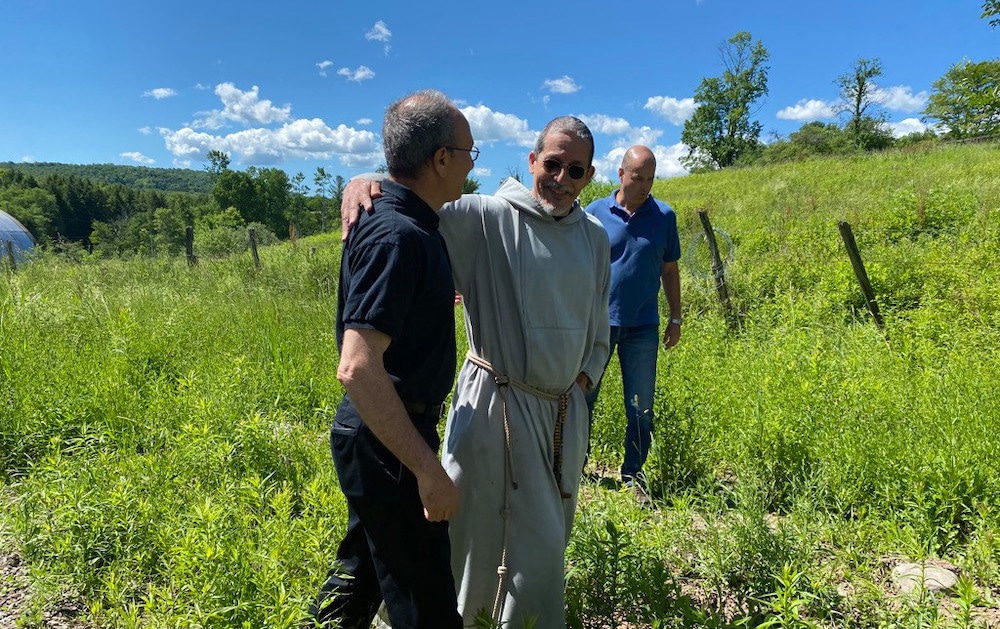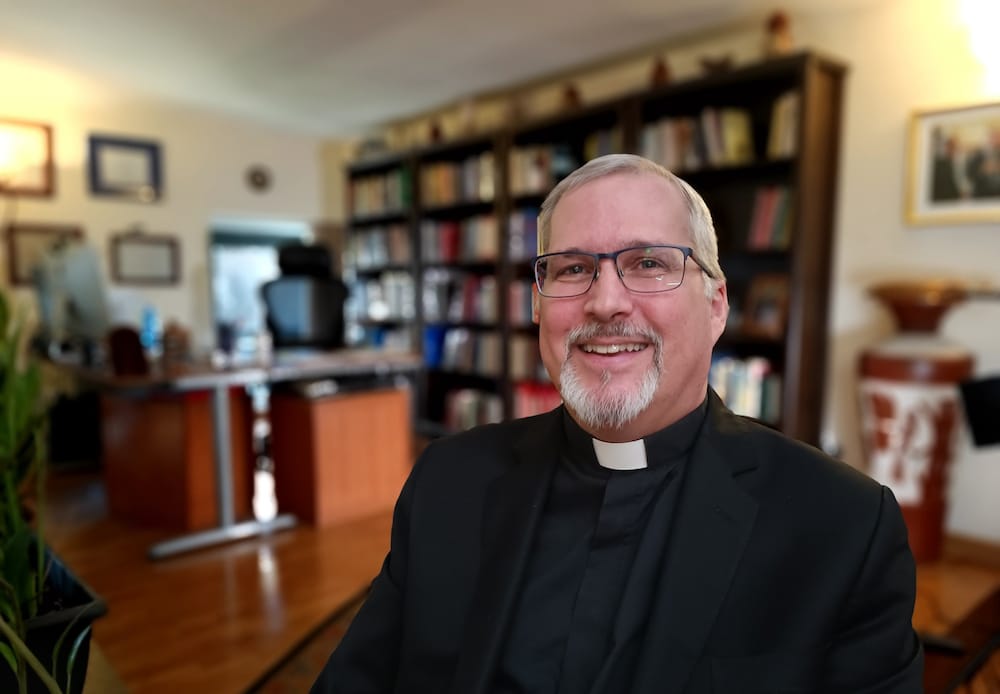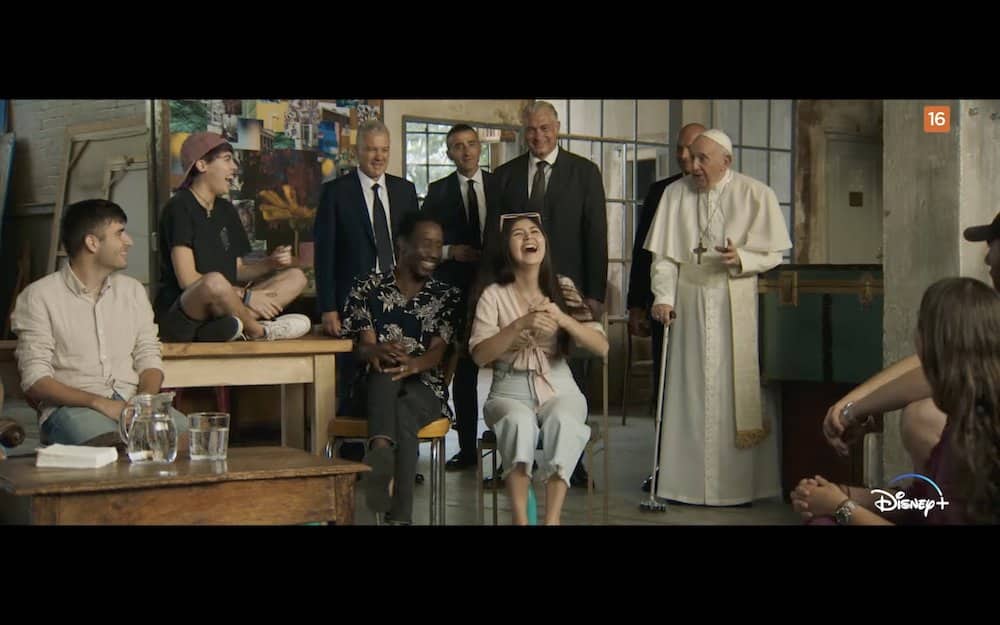“Meta” is a term we hear a lot these days, in many contexts. From the Greek for “beyond,” it often refers to an expanding of horizons, taking something that already exists to new and possibly previously-unconceived-of places. The so-called “metaverse” is a new frontier on the internet and in gaming.
So in what ways is this metaverse “beyond”? What sort of unconceived places will it be taking us? And will the Church have a presence there? Father Ian VanHeusen and MetaCatholic are answering those questions.
The front lines of evangelization
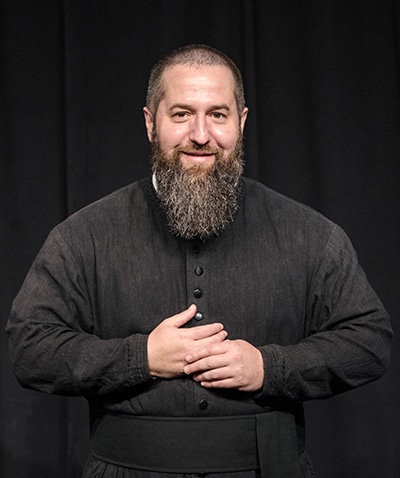
Father Ian VanHeusen is president of MetaCatholic, and the chaplain of the Newman Center at East Carolina University in Greenville, North Carolina. A priest of the Diocese of Raleigh, his ministry sees him working with a wide array of people in a wide array of contexts, including on the front lines of technological development. MetaCatholic is engaged in the development of virtual and augmented reality games and experiences in the metaverse.
“Basically, in the next two to three years, video-game technology is going to be used in every part of your life, with augmented reality, virtual reality and Web 3.0,” Father VanHeusen said. This technology is in its nascent stages, so it is not clear exactly how things will develop over time. Right now people can use virtual reality headsets, for example, and there are a number of apps available through which users can engage in these immersive experiences; but according to Father VanHeusen, it’s not clear how “these different experiences will be delivered.” But one thing is certain, he says: the Church must be a part of it.
Web 3.0 and the Church
Technology is not something that the Church can ignore, according to Father VanHeusen. The internet has revolutionized the world in ways no one could possibly have predicted, and the way in which the internet (and access to the internet) has changed over the years has been similarly unpredictable. The earliest days of the internet, commonly known as Web 1.0, went through about 2005, and featured mostly static websites, without much opportunity for interaction; Web 2.0 would be the current state of the internet, characterized by user-generated sites like social media and social networking, blogs, sharing sites like YouTube and Flickr, apps, and more; Web 3.0 can be thought of as an immersive experience, where the individual is much more in control. The so-called metaverse is part of this Web 3.0.
Read more Spring 2023 Vocation stories here.
“I talk a lot about divine providence,” Father VanHeusen said. “God knew from all eternity that this technology would be here. We believe in a God who is in charge of all things, who is the ruler of history. So how should we use this technology?” Web 3.0 is a tremendous opportunity for the Church, he said. “The big thing is that with Web 3.0, the Church needs to be there. We need to be there to evangelize, to create beauty. We can’t make the mistakes we did with Web 2.0.”
Using social media?
The Church was slow to adapt to the ways in which Web 2.0 could be leveraged for evangelization. There was debate about whether or not priests and seminarians should be allowed to be on social media, for example. The question was essentially resolved when Pope Benedict XVI himself promoted the use of social media, including opening a Twitter account. “But that was already 10 years behind the curve,” Father Van Heusen said.
This is not about the public perception of the Church. The important thing is not that the Church be seen as being “with the times,” but rather that the Church be there to evangelize, and to bring the Gospel to this facet of our lives. Figuring out how to do that effectively may take time, but for now, groups like MetaCatholic are on the front lines in the drive to bring Christ into the metaverse.
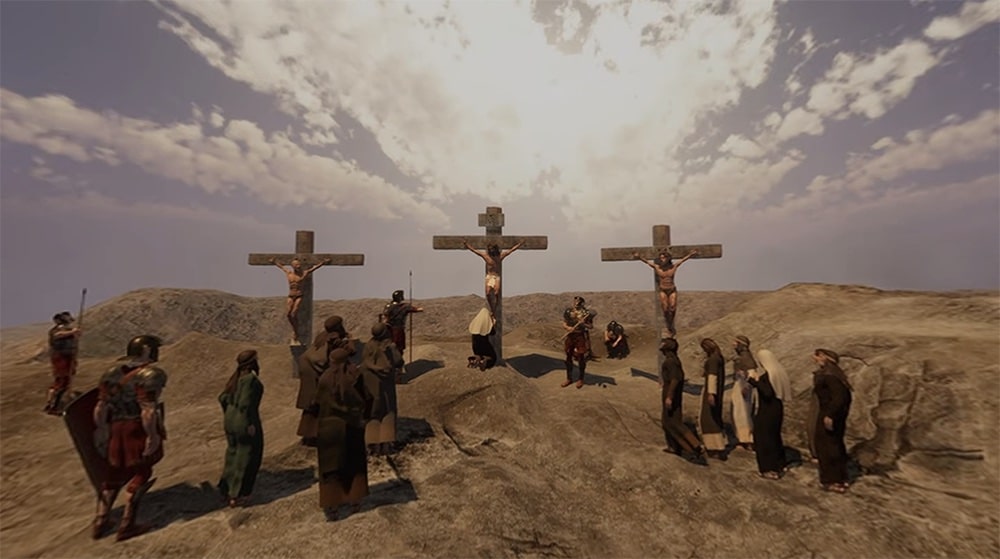
Faith Games, Inc.
MetaCatholic is now part of Faith Games, Inc. Their goal is to use virtual reality, gaming, and other multimedia content for Catholic education, exciting experiences and evangelization.
One of their first forays into the development of virtual reality experiences was a virtual reality Rosary, first with the Sorrowful Mysteries. The user could be “present” at each mystery, watching Our Lord as suffered through his passion. Father VanHeusen said that there are countless opportunities for other immersive virtual reality experiences.
A game in honor of Blessed Carlo Acutis

MetaCatholic is currently developing the Acutis Game, in honor of Blessed Carlo Acutis, a young Italian computer programmer who died in 2006 at the age of 15 and was beatified in 2020. Blessed Carlo created a website that documented Eucharistic miracles from around the world, leading many to consider him a patron for programmers. In the game, the player joins Blessed Carlo on adventures to explore the lives of the saints, holy pilgrimage sites and Bible stories.
In the Acutis Game, MetaCatholic and Faith Games, Inc., are attempting to improve upon the early and simplistic things that have been done by others. “There are some people who have built these kinds of simplistic chapels, but we’re doing all custom stuff,” Father VanHeusen said. It is important to bring beauty into this realm, and not simply have things be utilitarian or overly childish or simplistic. The way of beauty is an important means of evangelization, and this is no less true in the digital realm.
Where sin abounds
“I absolutely see this as an opportunity for evangelization,” Father VanHeusen said. “One of the phrases I use a lot for this is from Paul’s Letter to the Romans: ‘Where sin abounds, grace abounds all the more’ [Rom 5:20].”
People often ask him whether or not this new technology of virtual or augmented reality will make things worse, will lead to new and even unforeseen occasions for sin. “The answer is yes, for some people,” he said. In recent decades, we have seen the dangers and vice that the internet makes more readily available: pornography, human trafficking, and more. But there is also a great deal of good made possible by this technology.
“For a lot of us, though, it will actually make things better,” Father VanHeusen said. And for those who believe — all things work to the good for those who believe [cf. Romans 8:28]. This is going to be a great opportunity.”
Paul Senz writes from Oregon.



